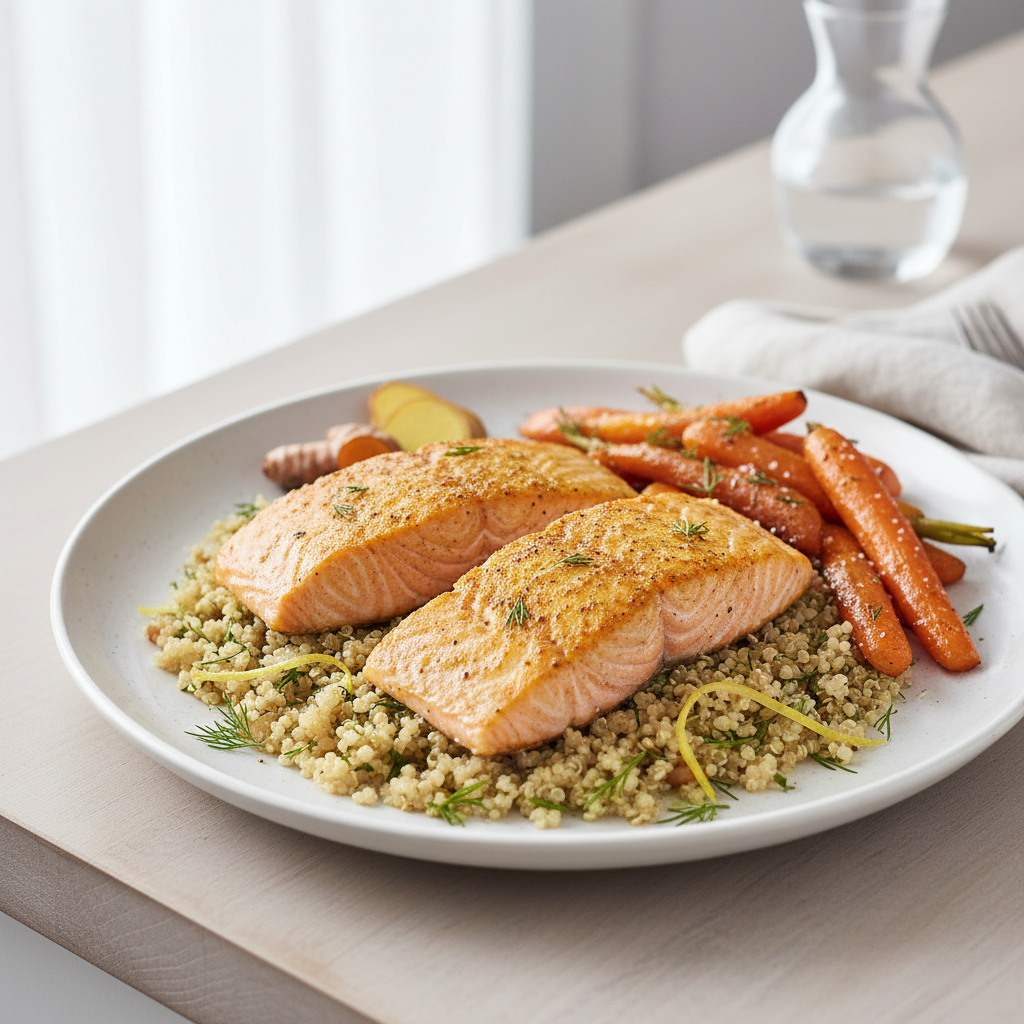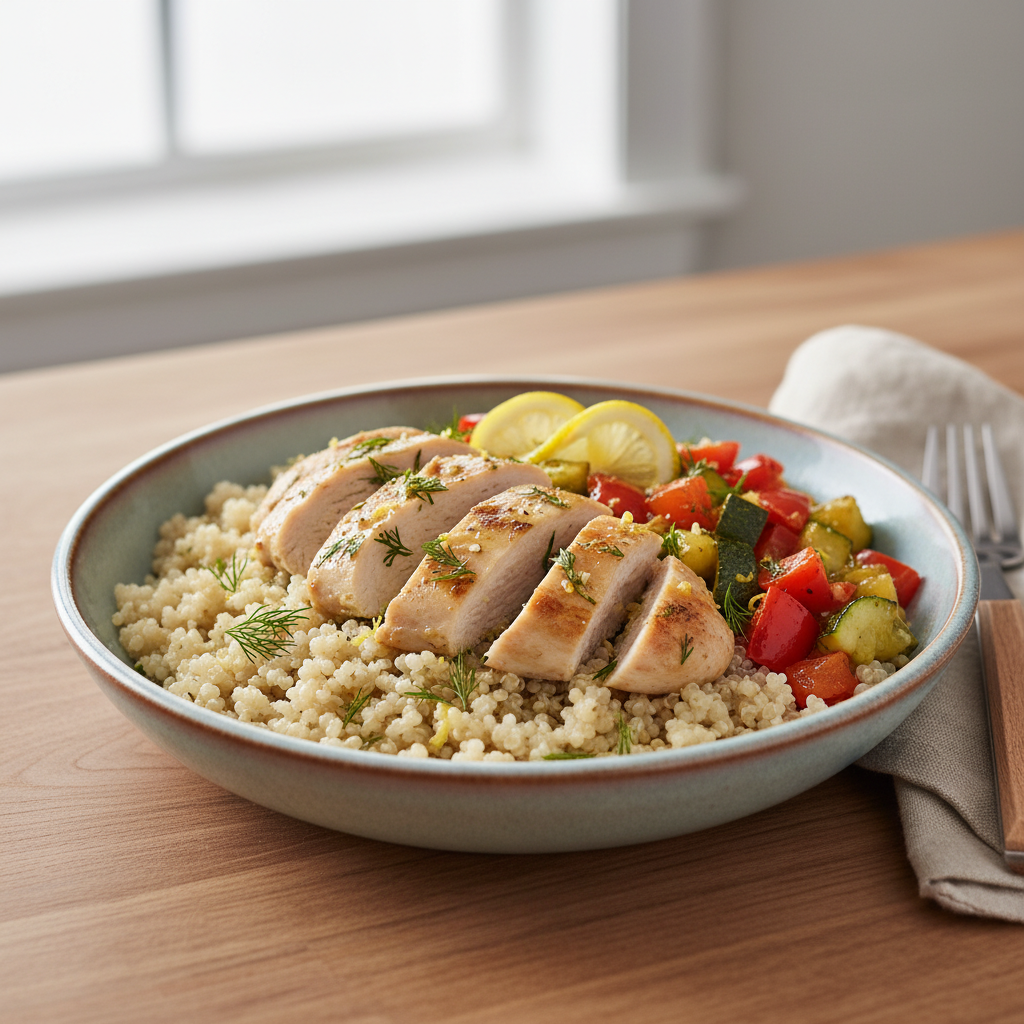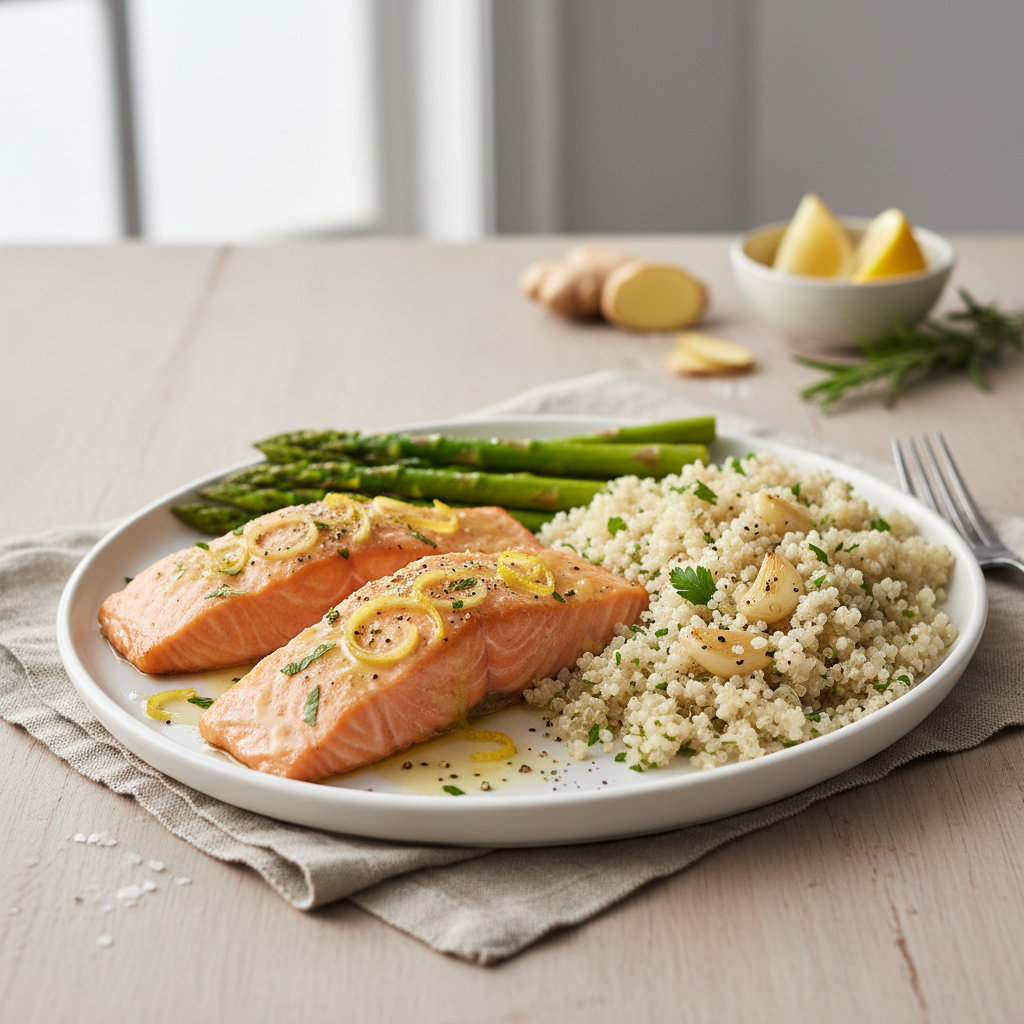
IBS
Diet for IBS is highly individual. Many people find relief by using a Low‑FODMAP approach short‑term (under guidance), then reintroducing foods to discover…
Conditions: Heart Healthy (32)
Anti Inflammatory (11)
Diabetic Friendly (6)
Blood Pressure Support (5)
Arthritis (4)
GERD (3)
Asthma (3)
Celiac Disease (3)
NAFLD (3)
Osteoporosis (3)
PCOS (3)
Thyroid (3)
IBS (3)
Migraine (3)
Liver Healthy (1)
Gut Friendly (1) See all
Diets: Gluten-free (39)
Mediterranean (24)
Dairy Free (20)
DASH (19)
Vegetarian (16)
Weight Watchers (15)
Low-fodmap (13)
Plant-Based (12)
Vegan (9)
Mayo Clinic (8)
South Beach (7)
Paleo (7)
Flexitarian (7)
Low Carb (7)
Pescatarian (6)
Keto (5) See all
Goals: Sustained Energy (1) See all
About IBS
Diet for IBS is highly individual. Many people find relief by using a Low‑FODMAP approach short‑term (under guidance), then reintroducing foods to discover personal tolerances. Emphasize gentle fiber (oats, bananas, cooked vegetables), lean proteins, and well‑tolerated fats. Keep portions moderate and consider smaller, more frequent meals.
Common symptom triggers can include onions/garlic, some beans, wheat, stone fruits, certain sugar alcohols, and very fatty or spicy meals. A food/symptom log can help identify patterns. Always follow your clinician’s plan.
FAQs
- Is Low‑FODMAP required for IBS?
- Not always. It can be a short‑term tool under guidance. Reintroduction helps identify personal tolerances so you can expand your diet as much as possible.
- How can I make meals easier on my gut?
- Try smaller meals, cook vegetables well, choose gentle fibers (oats/bananas), and avoid known personal triggers. Keep a simple food/symptom log.


